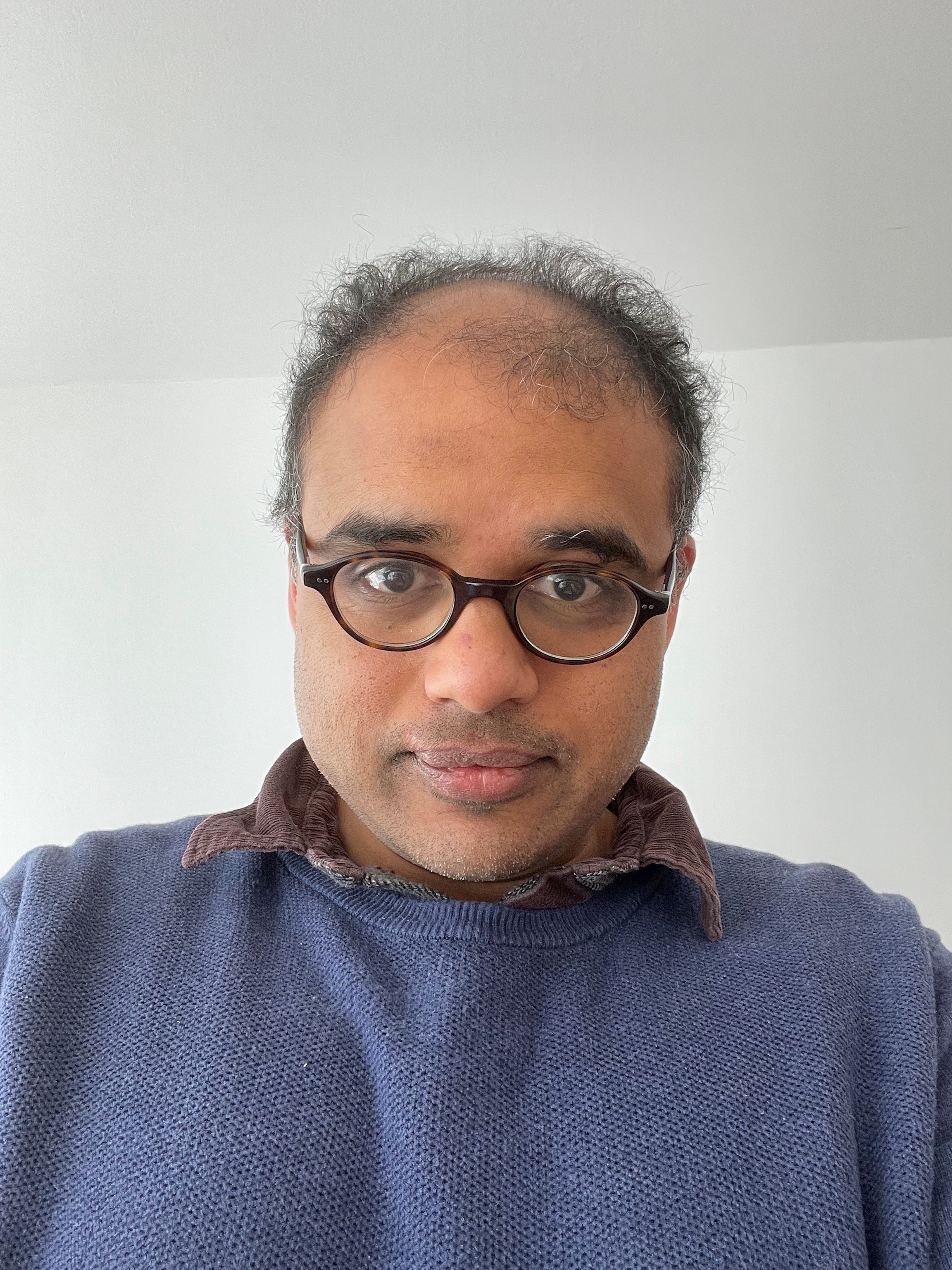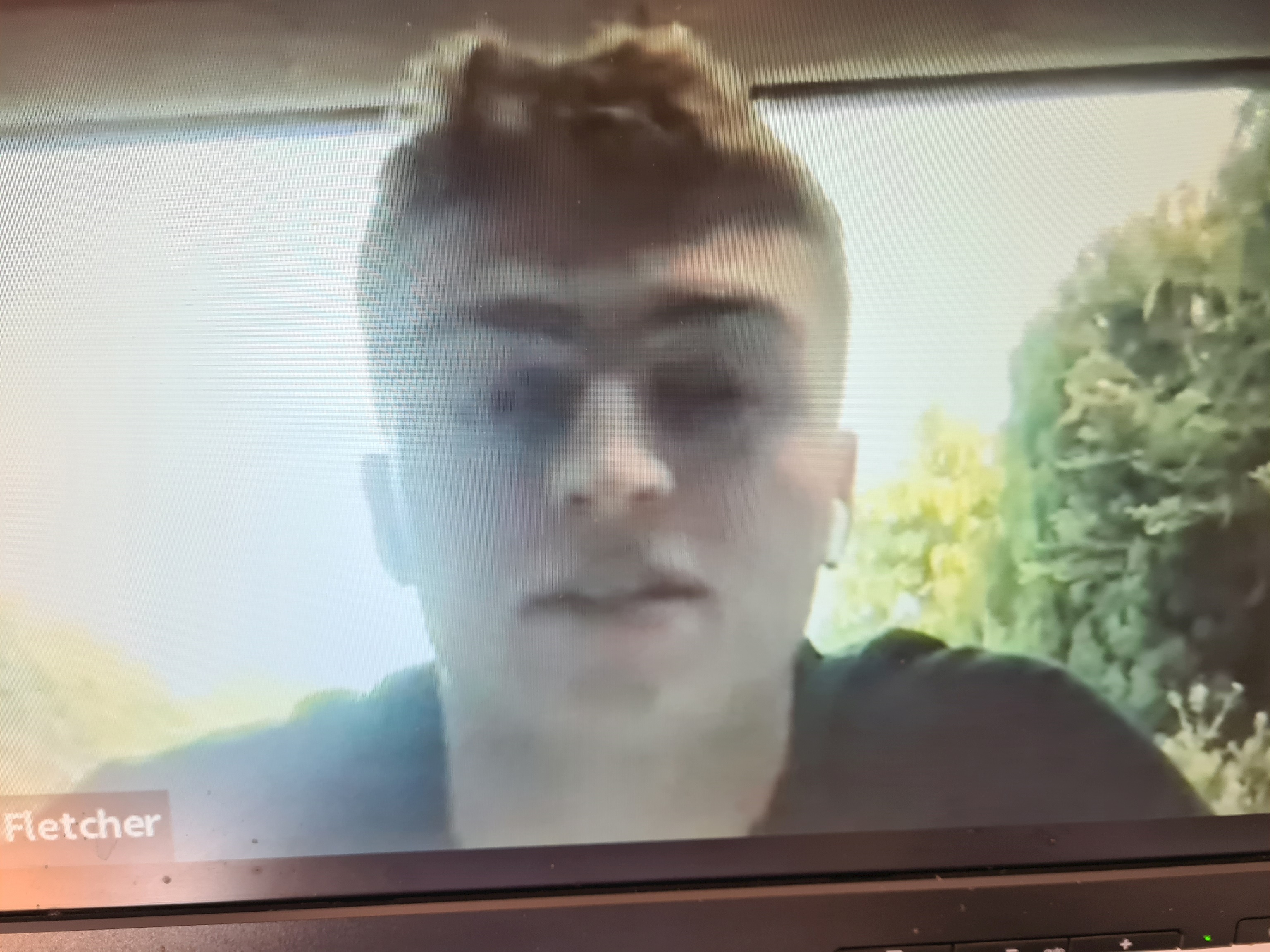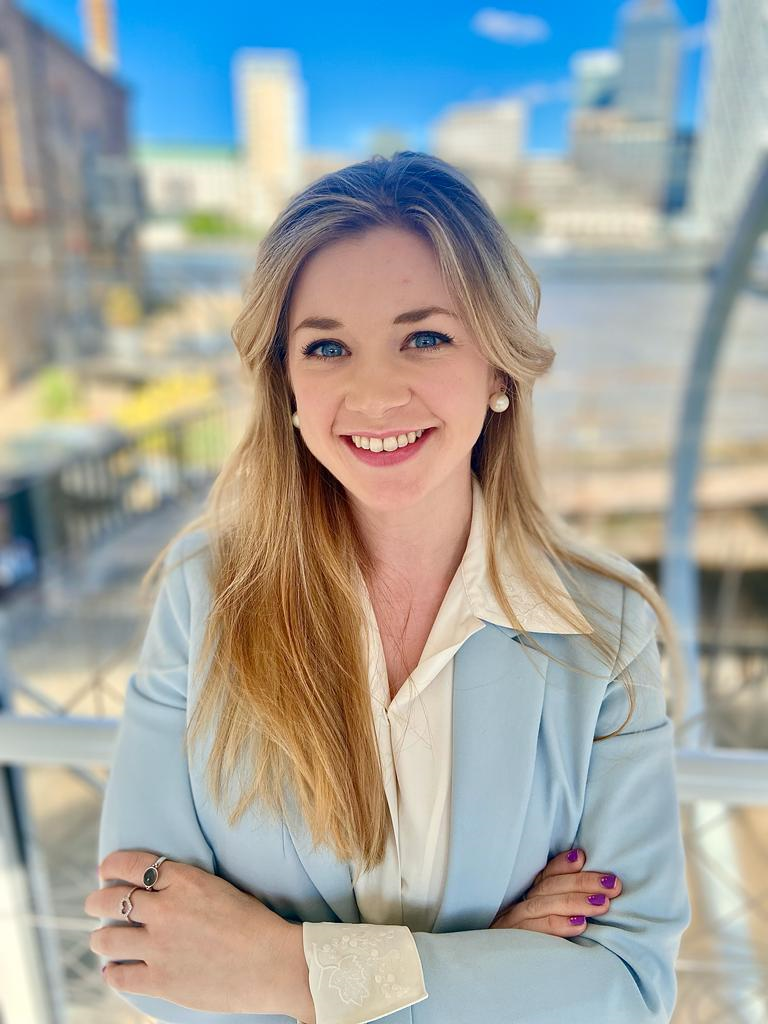
The final Perspectives lecture of the academic year at Bolton School considered those careers that are enhanced by being able to speak another language. The virtual presentation was topped and tailed by Mrs Kyle, Head of the Girls’ Division and Sixth Form languages’ student, Ben Rimmer. Ben, who hopes to study Russian and French at university, introduced four former pupils who spoke on the evening.
Sadie Scorah (Class of 2009) opened the lecture, telling of how, after studying French and Russian at Leeds University, she opted for a career in hospitality. She recalled how having a second language helped her successfully apply to work with Hilton Hotels via their Elevator Scheme. Bucharest was Sadie’s first posting and this was followed by spells in Warsaw and Antwerp before she returned to the UK to work in a number of Hiltons in London, progressing to her current role as Director of Operations at the Hilton Paddington. Sadie reflected on how she had enjoyed languages at school and explained that whilst teaching and translating are obvious jobs to go into, languages can help in many other fields too, including her own. She told how her language skills had been useful for dealing with customers and in communicating with her own staff and colleagues. Sadie also felt that a knowledge of languages can help in your personal life and that it allows her to talk to the non-English speaking parents of her Belgian partner. She also recounted a number of occasions when her knowledge of foreign tongues had enriched her life by allowing her to unlock conversations with those who could not speak English.
Next to present was Kallol Sen (Class of 1994). He agreed with Sadie that speaking another language goes way beyond making the sounds and is more about opening up gateways to other worlds. He recalled how he had studied Greek and Latin at A level, alongside modern languages before reading Classics at Oxford. As part of his degree, he said he really enjoyed studying philology (the history of languages and how languages develop and interact with one another). Kallol spoke of his early career in Frankfurt, teaching English and learning about the German culture, and of visiting South America and Asia. Returning to the UK, he told how he studied Chartered Accountancy and a Masters at the LSE, taking time too to undertake Business French and Business Germans diplomas. After nine years in the private sector, Kallol explained how he moved to the Bank of England and then to the European Central Bank in Frankfurt. He said that being multi-lingual helped you build a rapport with people, to make new friendships and to sell your own arguments and ideas. Whilst he said he worked hard, living in another country almost makes you feel like you are on permanent holiday!
Ben Fletcher, who left Bolton School just three summers ago, told how he is now studying Russian, French and Russian Studies at Edinburgh University. Ben recapped his schooldays, relating how he took French, Russian and History at A level and how his love of languages really flourished after the Moulins French trip and the Russia trip. He realised that to properly make friends with his French buddy, he needed to learn the language thoroughly.
Ben revealed how he had just returned from Lyon and felt he could now speak French fluently and told how he will shortly be going to Riga in Latvia for 2 months to further improve his Russian. After university, he said that he hoped to join the navy and that he believes having a grasp of languages will offer up more career options. Ben ended by relating how learning languages has definitely influenced his lifelong relationships. At university his best friends are two French-speaking Swiss students and a Ukrainian who speaks Russian.
Monica Sobrero (Class of 1990) explained how she had been born in Italy but had moved to the UK in 1984 and immediately joined the Girls’ Division in Year 8. She told how she studied French and Italian with European Studies at the University of Sussex in 1990 and, like the previous speakers, had loved her undergraduate years and her year abroad in France and Italy. Monica recalled how she had joined a marketing agency in 1994 in Manchester before becoming a Translator, a job that she said she found quite lonely. Monica said she prefers to actually be with people and enjoys working in various settings. Once she had achieved her Diploma in Public Service Interpreting, she was added to the national register and, she said, she was then up and running as a freelance Interpreter and had never looked back. Twenty-three years on, she told how she now restricts her work to three settings: legal, health and corporate, which includes the world of sport. Considering the discipline, Monica told how there are three types of translation: simultaneous, often performed in a booth; whispered, which often takes place in court; and consecutive, which is for longer speeches, for example a mental health report. Monica related how Covid had influenced her profession with many more meetings now taking place through Zoom. She also said that part of her role is to be an actor in that you sometimes have to relay how something is said, perhaps by a barrister, not just what is said. Her aim, Monica said, is to help people communicate effectively and the key skills required for her job are to take good notes and to concentrate.
Miss Roddy, Head of German in the Boys’ Division, oversaw the questions and answers session, which had the panellists talking about the best places they have worked, their favourite languages, their advice for current languages’ students, how to gain work experience and at what point they realised they were fluent in another language.
You can watch the full lecture again through this link.


























